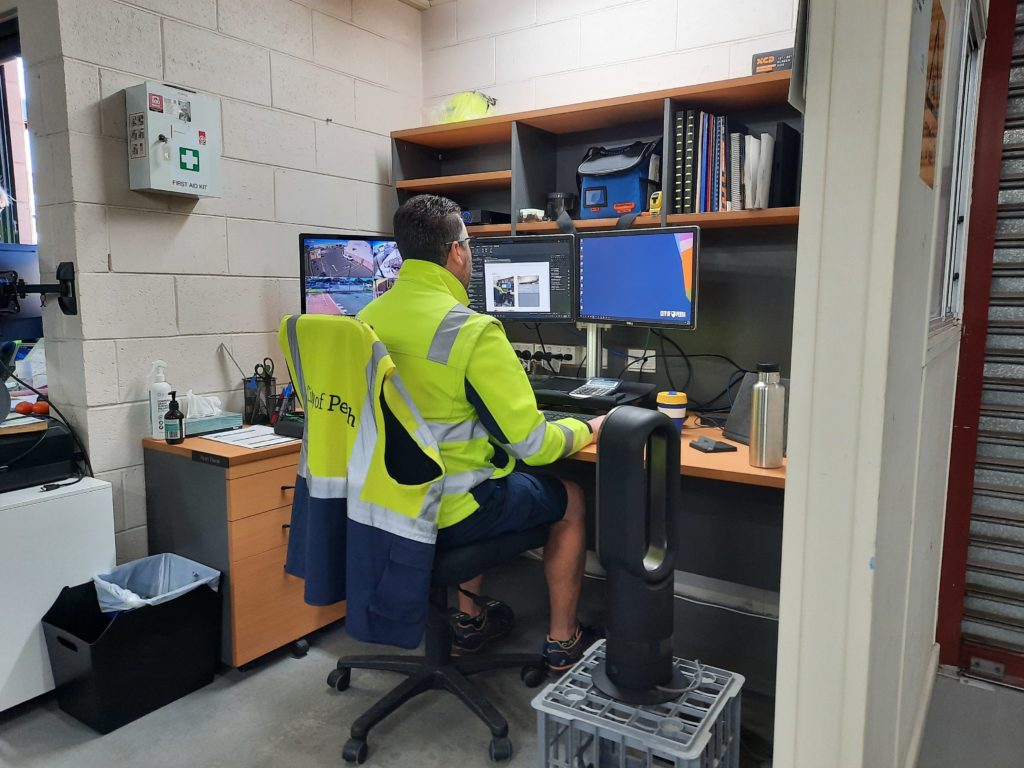How to safely work in heat?
The Work, Health and Safety Act WA (2020) requires local governments (PCBUs) to ensure health and safety, so far as is reasonably practicable, by eliminating hazards and risks.

Special Counsel DLA Piper
Simon is a specialist litigator at DLA Piper. As a regular service provider to the LGIS, he has extensive experience representing and advising local governments on all manner of risks, including contractual, trade practices and negligence claims. Simon regularly appears in State and Federal Courts of all levels.

It is a trite observation that documentary evidence plays a central role in litigation. Provided that the legal arguments advanced by the parties are sound, the prosecution or defence of any claim will turn upon the quality of evidence that can be presented in support of it. Within that general statement, however, lies considerable nuance.
As will be explored, the reliability of documentary evidence is in large part influenced by the thoroughness and consistency of an organisation’s record keeping processes. This article considers the importance of such record keeping processes in the context of: claims based upon verbal representations, claims based upon alleged failures of due process, and defences based upon the good faith exercise of power.
The Work, Health and Safety Act WA (2020) requires local governments (PCBUs) to ensure health and safety, so far as is reasonably practicable, by eliminating hazards and risks.
Local governments are subject to strict legal obligations, including those contained within the State Records Act 2000 (WA), to maintain records created or received in the exercise of their functions.
When considering high risk or high hazard assets, it is important to adopt a proactive approach while managing them. Due to resource constraints, property risks are commonly managed in a reactive manner after an incident, near miss, or workplace inspection by a regulator or LGIS.
Local governments often face claims based upon verbal representations. These include claims for misleading or deceptive conduct, negligent misstatement, and the breach of unwritten agreements. Such claims regularly devolve into ‘he said, she said’ arguments over the words each respective party claims were spoken. Whilst it is tempting to imagine that the ‘truth will out’ and courts will divine the truthfulness or otherwise of the parties’ claims from their performance under examination, the reality is that Perry Mason style confessions in the witness box are exceedingly rare.
To the contrary, there is a growing weight of scientific literature demonstrating not only the inability of judges (or anyone else) to discern truth from falsity based upon the appearance of witnesses, but also of the inherent unreliability of memories themselves.
As a result, courts increasingly look to contemporaneous records, in conjunction with the surrounding conduct of the parties, to determine the facts in issue. In practical terms, it is thus difficult to persuade courts that verbal representations were made absent corroborating records.
Conversely, the existence of supporting documentation, such as emails confirming the content of verbal communications, carries significant weight. Crucially, even where contemporaneous documents do not exist, the absence of such documentation may of itself be presented as evidence, where a thorough and consistent record keeping practice can be shown, and such documents would be expected to have been captured by those records.
Often, the very existence of record keeping protocols will be critical in determining the outcome of claims. Local governments are, by-and-large, required to exercise their powers and functions by reference to prescribed processes and procedures.
Claims raised against local governments are thus often concerned with the adherence to process. In some cases this will be explicit, such as where legislation requires local government officers to receive certifications in support of development applications. In other cases, less so.
Invitations for tender, by way of example, often give rise to what are referred to in legal parlance as ‘process contracts’. These are implied contracts governing officers’ conduct in assessing tenders received. Claims that a tender process has not been followed will often involve allegations that the officers missed some step in the process or gave ‘lip service’ to the process only; having pre-determined its outcome. These claims are thus largely based upon inferences drawn from the absence of documentation. In order to demonstrate that the process has been followed genuinely, it is imperative to record in detail each step in the process, including the delegation of authorities, declarations of any conflicts of interest, the communications
with tenderers, and the detailed evaluation that was undertaken.
Local governments may also, on the other hand, attract liability for functions performed in accordance with applicable processes if it can be shown that they did so maliciously (that is, with an overriding intention to cause harm).
This represents a particular risk where local governments exercise prosecutorial roles, such as the levying of fines. Intention being a matter peculiar to the officer(s) in question, the courts will generally base findings of malicious intent upon inferences drawn from departures from standard practice.
In order to answer such claims, it is thus imperative that local government officers document their usual practice, as well
as the reasons for any departure form that practice.
Similarly, various statutes governing the functions and powers of local governments, including the Local Government Act 1995 (WA), Civil Liability Act 2002 (WA) and various emergency management acts, afford defences to local governments and their officers for conduct undertaken in good faith. These defences, generally speaking, also apply to omissions. To avail themselves of these defences, it is necessary that the officers at least give consideration to the exercise of their powers. It is not enough to blindly decline to act. It is therefore crucial to the advancement of such defences that evidence be presented to show that consideration was given to the exercise of power.
There are many other cases where the maintenance of records pays a crucial role in the response to claims. These include defences, such as the ‘highway immunity’ enshrined in section 5Z of the Civil Liability Act, based upon a lack of actual knowledge of risk. In such cases, the existence of reliable record keeping processes will be crucial to demonstrating the absence of complaints and thus knowledge of risk.
Key message
Whilst it is not possible, in an article such as this, to deal exhaustively with the many and varied claims faced by local governments, to the left hopefully demonstrates the critical role that the maintenance of thorough, consistent and reliable records plays in the litigation process. The institution of such processes, whilst potentially inconvenient in the short term, will significantly lessen the risks faced by local governments in the defence of legal claims.
Each month we take your questions to one of our LGIS team members to answer.
If you want to submit a question for next issue, email us at [email protected]

LGIS receives approximately 1,300 claims on average each year; for the past five years, of those the vast majority are common law claims.

A decade’s long partnership between LGIS and the Royal Life Saving Society of WA (RLSSWA) has delivered benefits to the entire WA local government sector – but work still needs to be done to make sure that audit recommendations are actioned to keep aquatic centres safe.

The City of Perth engaged the LGIS injury prevention team
to evaluate workstations of a group of employees at their depot to make sure they were comfortable, safe and less likely to injure themselves.
LGIS is the unifying name for the dedicated suite of risk financing and management services for WA local governments, established by the WA Local Government Association in conjunction with JLT Public Sector (part of the Marsh group of companies). LGIS is managed by JLT Public Sector (ABN 69 009 098 864 AFS Licence 226827).
Risk Matters, via this website, is designed to keep members, their staff and elected members informed on topical risk management and insurance issues and LGIS programs and services.